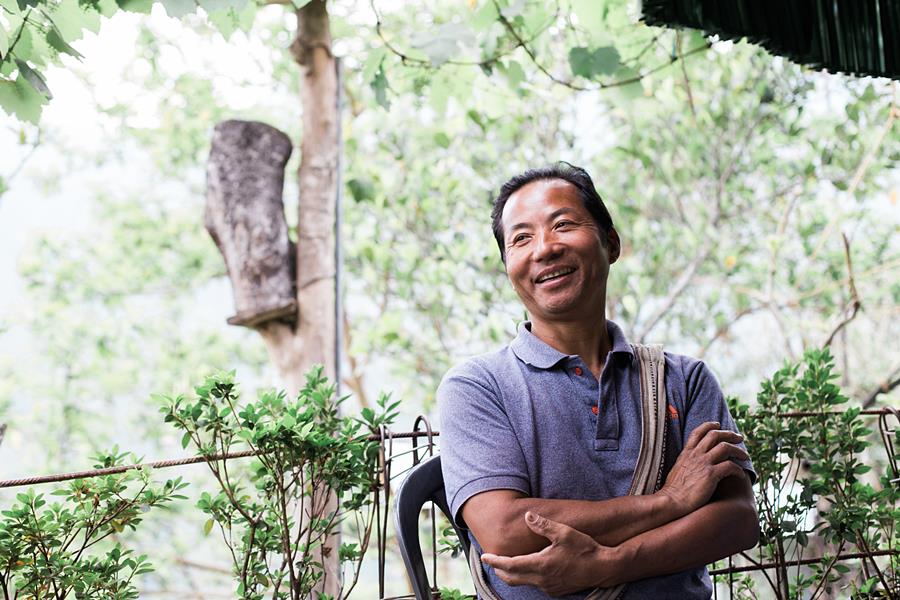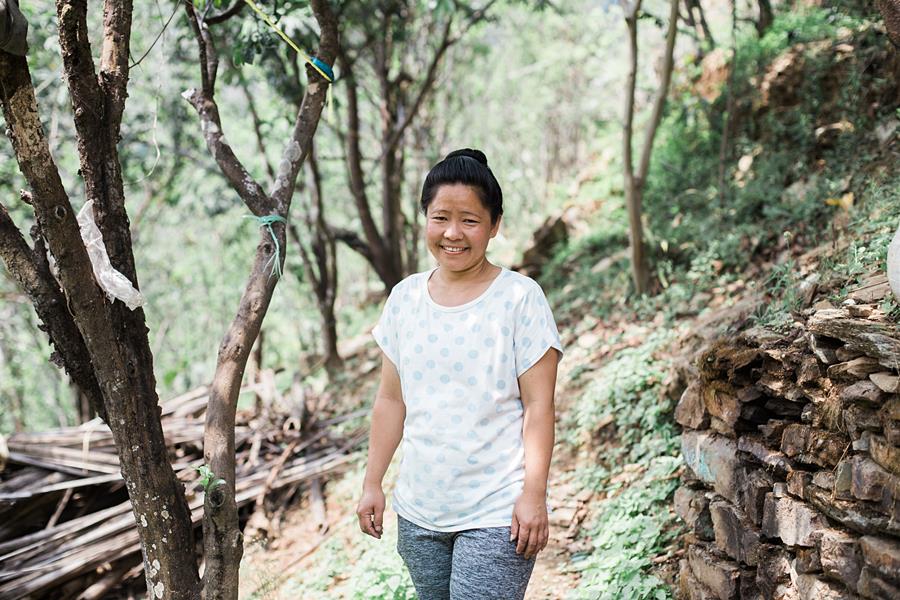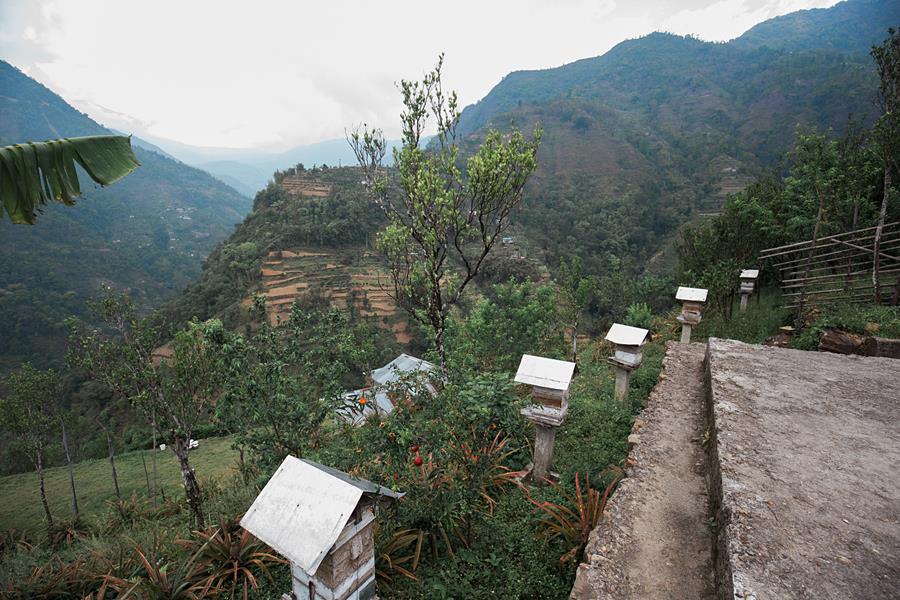At the end of our conversation in early May 2017, Azing looked a little rueful as he recollected the times when he could not afford chappals and the shopkeepers in Rinchinpong would not give him credit for as little as fifty rupees. Hurt and humiliation wash over his face when he recollects an incident when a shopkeeper took back his purchases and returned his empty bag when Azing asked for credit. Today, his position has changed, and he enjoys a well-earned recognition and prosperity. His older son is a graduate and at the moment works in a hotel in Gangtok, and his daughter goes to school.
In 2004, he surveyed his inheritance, the steep and rocky piece of land, rightly named Tarsung Dara in Hathidhunga, four kilometers from Rinchinpong. Anyone would have given up even before starting to work on this inhospitable piece of land, but not Azing. Stung by poverty and determined to mine it to yield gold, he set to work. His innate knowledge of the various micro-environments spanning from the humid valley to the crispier climate at the top of the land all came to his aid in planning his garden.

The honey from putka is meagre but the earnings are substantial, as the honey of this variety is highly prized for its medicinal value.
He began by planting fruit trees—orange, pear, pineapple, banana, passion fruit and jackfruit. Azing might have picked up some cultivation tips while growing up, since his father was also an orange farmer. He says with certain satisfaction, “Earlier we bought saplings from far away but now we have developed a nursery and we propagate our own saplings and we manage to sell the extra ones.” He grows plums and amla (gooseberry), cash crops like ginger and cardamom, potatoes and tomatoes. He raises poultry, cows and even fish. Along with the plantation activities he began beekeeping, both the honey bee as well as the rarer variety of putka (stingless bee). He expanded his activities gradually over the years to include winemaking and processing and sale of honey. The honey from putka is meagre but the earnings are substantial, as the honey of this variety is highly prized for its medicinal value. In fact, his main earnings come from honey harvested from the hives in the forest as well as the ones on the farm, and he also collects honey from surrounding villages.


Azing’s intimate knowledge about the relationship of the bees with different flowers helps him to understand the problems of the honey bees. In every season when different flowers are in bloom, the honey derived from them also acquires different flavours. In 2017, chewri trees did not blossom and the yield of honey declined. He found that wild trees normally fruit every alternate year, unlike cultivated fruit trees. When chewri fruits are in abundance, everyone is happy—the bees, the monkeys and the humans who pluck the fruits to sell, or, as in his case, to make wine. In June-July when the corn flowers blossom then the honey is good, too, he says.
When the bees gather nectar from bamboo blossoms they cannot regurgitate and they die. The smell of ginger and garlic harms the bees and these crops should not be planted near the bee hives, he warns. In January, when no other insects are available, the drongos eat the bees, catching them even in mid-flight. The malsapra (civet cat) eats the honey. Ants also harm the bees but he protects them by placing the poles on which the putka has its hive in a pool of water.

No conversation about Azing’s achievements is complete without mentioning his equally industrious wife Dil Maya, who has played an important role in the development of the farm. Besides helping out at the homestay and the farm, she also makes wines, juices and even some skin creams with the fruits, all of which add to the earnings of Azing’s Model Farm.
Once Azing’s success story began to filter through, different government departments came up with various schemes to help him. The Horticulture Department contacted Azing because of the oranges that he grew and helped him with some technical knowhow, and also provided him with supplements. The Tourism Department gave him funds to establish a homestay. The Agriculture Department and Rural Management and Development Department assisted him with water supply, and a structure for training purposes.

Going through the visitors’ book at the farm, one finds an impressive and varied list of names ranging from representatives of international organizations such as Food and Agriculture Organization of the United Nations to ministers from the Sikkim Government, along with farmers’ groups from within the state and a stream of tourists, who come to marvel at the handiwork of this man who made the inhospitable land into a veritable garden.
Photo Gallery
(Click to enlarge)







I am from Gangtok. Want to buy pita honey. How and where I can buy. Please send me details.
can you supply your products in Indore. Please provide details.
🙏🙏🙏🙏
Of Late, Aazing Lepcha has been slightly over confident and trying out everything provided by the departments which is ultimately killing his indigenous products and his layman innovations.